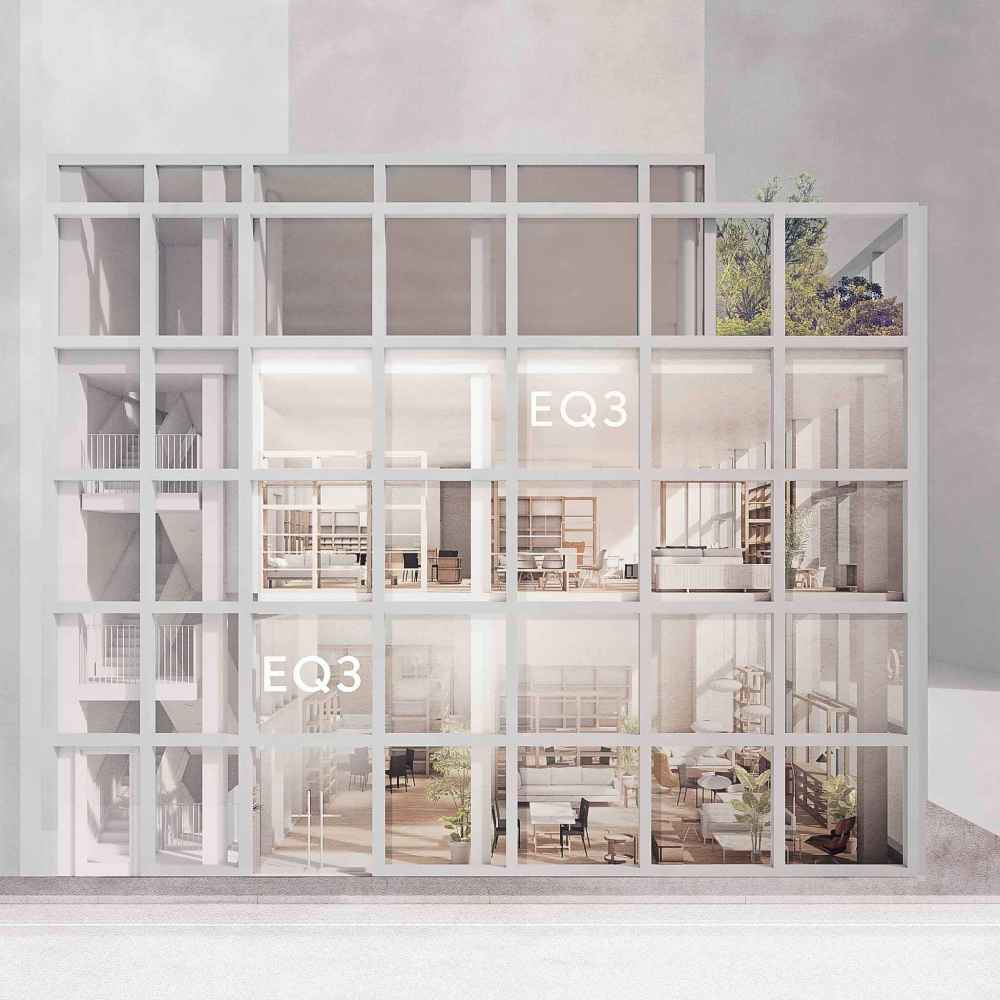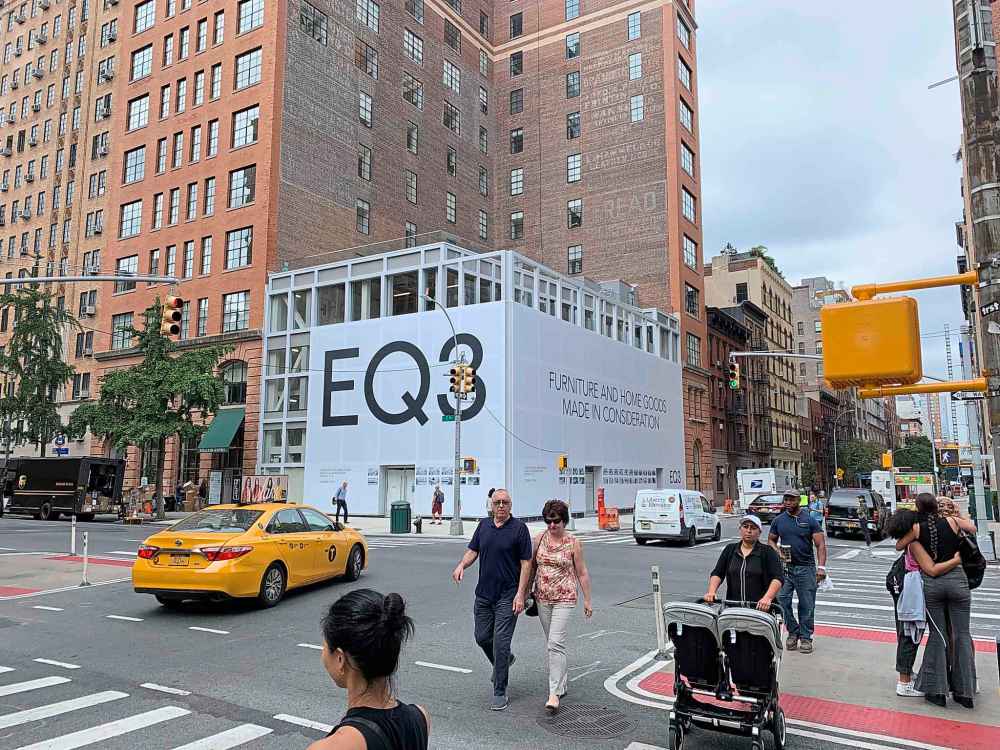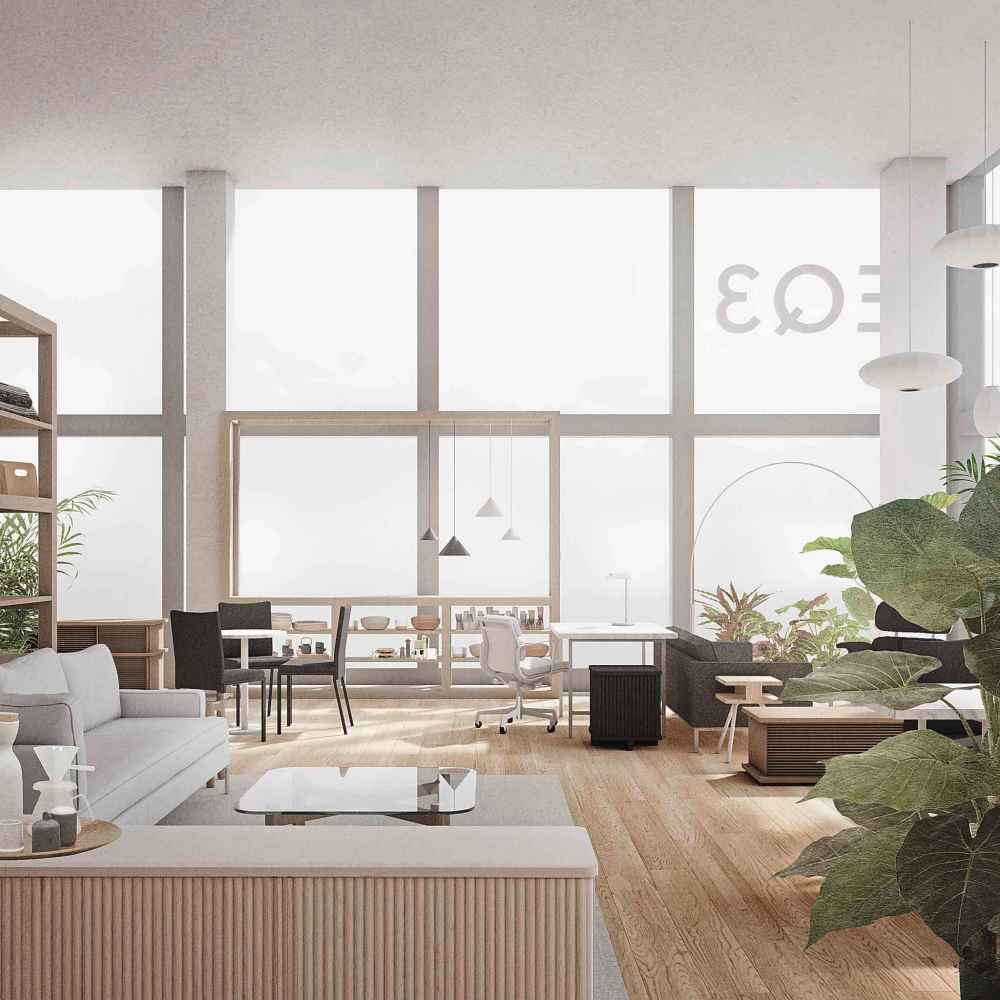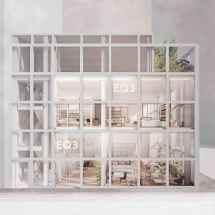From Polo Park to Central Park EQ3 in NYC Homegrown furniture designers EQ3 build stunning showroom in heart of Manhattan
Read this article for free:
or
Already have an account? Log in here »
To continue reading, please subscribe:
Monthly Digital Subscription
$0 for the first 4 weeks*
- Enjoy unlimited reading on winnipegfreepress.com
- Read the E-Edition, our digital replica newspaper
- Access News Break, our award-winning app
- Play interactive puzzles
*No charge for 4 weeks then price increases to the regular rate of $19.00 plus GST every four weeks. Offer available to new and qualified returning subscribers only. Cancel any time.
Monthly Digital Subscription
$4.75/week*
- Enjoy unlimited reading on winnipegfreepress.com
- Read the E-Edition, our digital replica newspaper
- Access News Break, our award-winning app
- Play interactive puzzles
*Billed as $19 plus GST every four weeks. Cancel any time.
To continue reading, please subscribe:
Add Free Press access to your Brandon Sun subscription for only an additional
$1 for the first 4 weeks*
*Your next subscription payment will increase by $1.00 and you will be charged $16.99 plus GST for four weeks. After four weeks, your payment will increase to $23.99 plus GST every four weeks.
Read unlimited articles for free today:
or
Already have an account? Log in here »
Hey there, time traveller!
This article was published 01/11/2019 (2234 days ago), so information in it may no longer be current.
EQ3’s newest store is closer to Central Park than Polo Park.
The Winnipeg-based company, founded in 2001, officially opened its first store in New York City on Friday, an 11,800-square-foot flagship in the heart of Manhattan that marks the furniture retailer’s boldest move yet, one its president hopes signals his company’s arrival as a major player in the North American furniture industry.
“It heralds our entrance into the modern furniture market,” said Mark Letain, who’s been with the company since 2006 and could hardly contain his excitement. “We’re basically saying we’re here in the United States to compete, and that we think we can win among the best furniture retailers in the country.”

Over the past 18 years, when it was founded as basically an internal start-up at Winnipeg’s Palliser Furniture, EQ3 has enjoyed a remarkable level of success that few Manitoban, if not Canadian, companies have known domestically and south of the border. The company’s Winnipeg store, adjacent to Polo Park, opened in 2005, followed by one in Calgary two years later. Soon came the opening of a store in San Francisco, and by the end of this year, EQ3 will have 18 stores in North America: 11 in Canada, and seven in the U.S.
While other legacy retailers, namely Sears, have fallen by the wayside, resisting technological advances and refusing to adapt as the retail industry changes, Letain said EQ3 has retained a nimble spirit which has enabled it to not only survive, but thrive: at its start, EQ3 was staffed by about a dozen employees, now it has 500 and counting.
As the recession of 2008 hit, the company dedicated itself to vertical integration, and soon after, it began to adopt e-commerce techniques to pair with its showroom sales.
“We were just trying to figure out how to operate a website that sells products,” Letain said.
It seems common now for a furniture company to have an online store, but at that point, it was a relatively new concept. At that point, bricks, as in “brick and mortar,” was considered a much more significant revenue stream than “clicks,” or web-based sales.

The early adoption of e-commerce proved prescient, and now the company is working within a “bricks-and-clicks” model, Letain said.
“What we’re looking at is an omni-channel mode. A seamless experience between e-commerce and [traditional sales],” he said.
For a growing business at EQ3’s size, that integration is essential. In Canada, the bulk of retail sales — roughly 96 per cent — are made in brick-and-mortars. But, according to Stats Canada, the percentage of e-commerce sales has been climbing steadily since 2013. That year, about 1.5 per cent of all domestic retail sales were made online. In July, that figure was up to 3.2 per cent. On a year-over-year basis, retail e-commerce has increased 32.8 per cent, while unadjusted retail sales were up by 3.7 per cent.
Those figures support the idea of a bricks-and-clicks approach, said Ed Strapagiel, a Toronto-based retail consultant. And especially for companies trading in tangible comfort — such as furniture, clothing or vehicles — it wouldn’t make sense to have a “one or the other” approach.
“We’re basically saying we’re here in the United States to compete, and that we think we can win among the best furniture retailers in the country.” – Mark Letain, president of EQ3
“It’s nice to look at the pictures of it, but if you’re really seriously considering a purchase, people like to go in and see if you want to sit on it, sleep in it, eat on it, whatever the case may be,” he said. “The combination [of online and brick-and-mortar] is good.”
Letain said that “pure-play” retail, that is, opening a store and hoping it will be enough, is dead for national or international retailers. The same goes for strictly digital ventures, he suggested, pointing to a bevvy of formerly online-only retailers such as Casper mattresses, Warby Parker eyeglasses and Peloton stationary bikes who have opened several brick-and-mortars as evidence.
EQ3 has carried Casper products in its stores since last year, for example.
“The idea is that you can only win if you do both well,” he said.

As for opening such an ambitious store at 116 7th Ave. just north of Greenwich Village, Strapagiel said it seems like a fairly natural progression for EQ3, which has already succeeded in high-priced markets like San Francisco and Chicago, and has plans to open in Connecticut this year.
“They’re taking a shot at the big fish, as it were. It’s a gamble, but it’s always a gamble in retail,” he said.
Letain seems confident the gamble will pay off. He views EQ3’s New York store as a marketing tool, not just a sales machine, with bright, massive windows that display the company’s goods to a city that Strapagiel points out has more residents than all of Canada does.
Designed by Thom Fougere, the company’s former creative director and a graduate of the University of Manitoba’s environmental design program, the building is in stark contrast to the literal brick-and-mortar design of nearby flagships such as Williams Sonoma and Pottery Barn.
“In a city perpetually overwhelmed with extravagant buildings, we had to find a way to stand out,” said Fougere.

And in an industry where most retailers are cowering and turning away from traditional real estate, EQ3 is doing just that, Letain said. The company is opening six locations this year.
“There aren’t too many companies expanding brick and mortar in what’s been termed the retail apocalypse,” he said.
In New York, that expansion isn’t cheap: the store’s rent hasn’t been ironed out yet, but Letain said standard occupancy costs in the neighbourhood run as high as $300 per square foot. The store will occupy two floors of a three-storey building, and the top floor will house offices for Thirty Five Ventures, the company started by the Brooklyn Nets star Kevin Durant, one of the wealthiest athletes in the world, who stands 6-foot-10.
It’s high company, and a high cost, but Letain said the company is ready for it.
“It’s a rare opportunity,” said Fougere.
ben.waldman@freepress.mb.ca

Ben Waldman covers a little bit of everything for the Free Press.
Our newsroom depends on a growing audience of readers to power our journalism. If you are not a paid reader, please consider becoming a subscriber.
Our newsroom depends on its audience of readers to power our journalism. Thank you for your support.










